|
THANKSGIVING
Sunday, November 18, 2012 or Thursday, November 22, 2012
Writers for This Unit: Luke A. Powery, Dean of the Chapel, Duke University, Durham, SC, provided the commentary for this unit. Reverend Delesslyn Kennebrew of Mississippi Boulevard Christian Church, Disciples of Christ, of Memphis provided the cultural material. Sharon Fuller of BOSS Ministries provided the music and worship material.
The unit you are viewing, Thanksgiving, is a compact unit. This means that it does not have a supporting cultural resource unit and worship unit. Instead, to enliven the imagination of preachers and teachers, we have provided scriptural text(s) that we suggest for this moment on the calendar along with a sermonic outline, suggested links, books, articles, songs, and videos. For additional information, see Thanksgiving in the archives of the Lectionary for 2008–2011.
I. Description of the Liturgical Moment: Thanksgiving
Lester McCorn wrote in the 2008 Thanksgiving lectionary commentary:
The Thanksgiving holiday is a distinctly American celebration that has been adapted in the African American religious tradition. More than an historical event to be commemorated on the calendar, the act of “Thanksgiving” is an organic, authentic, and integral theme of African American worship. Provoked expressions of “thank you” are common in the various call-and-response, song, offering, proclamation, and prayer and praise statements of worship in the black church. Therefore, a Thanksgiving Service, as a devoted time of reflection, remembrance, and renewal of the faith, is a customary occasion in many black churches, observed on the corresponding date of the fourth Thursday in November.
The distinction between the American national holiday and the African American religious celebration can be described as the nuanced differences between commemoration and culmination. Thanksgiving serves as the dynamic climax of a journey, and not a static commemorative event. It is celebrated near the end of a calendar year and directly before the season of Christmas/Advent (technically the beginning of the Christian Calendar). The journey is at once ending and beginning. We give thanks for where the Lord has brought us from, while simultaneously giving compulsory “anticipatory thanks” for what lies ahead. For African American worship, thanksgiving and praise go hand-in-hand.
John Guns wrote in the 2009 Thanksgiving lectionary commentary:
Foundational to the Christian experience is the act of thanksgiving. Our level of thanksgiving often defines who we are and what we are called to express daily in concrete ways. Couple that with the Thanksgiving holiday and, potentially, you have a powerful worship experience that blends the best of the Christian faith. Thanksgiving, though not a distinctly Christian holiday, at least in America, is still important. Throughout the United States, churches and families gather to express their appreciation to God for all that God has done. It is one of the moments of the year where worship is both easier for, and expected by, all who attend church services—the premise being, of course, that all of us have something for which we can be thankful.
Within the African American faith community, Thanksgiving is both a holiday and an ongoing act that speaks of our intense passion and love for God who has, throughout our tumultuous journey in this country, brought us “a mighty long way.” Thanksgiving allows us to gather as family and celebrate the many “marvelous acts” of God. As the Christian church gathers to celebrate Thanksgiving, it is a great time to reflect upon the suffering and challenges that have arisen throughout the year and how God has, through Jesus Christ, enabled us not only to endure but also to grow.
James W. Baker, Senior Historian at Plymouth Plantation, writes:
The reason that we have so many myths associated with Thanksgiving is that it is an invented tradition. It doesn’t originate in any one event. It is based on the New England puritan Thanksgiving, which is a religious Thanksgiving, and the traditional harvest celebrations of England and New England and maybe other ideas like commemorating the pilgrims. All of these have been gathered together and transformed into something different from the original parts.
Thanksgiving’s Ancient Origins
Cultural Resource writer Delesslyn Kennebrew writes:
Although the American concept of Thanksgiving developed in the colonies of New England, its roots can be traced back to the other side of the Atlantic. Both the Separatists who came over on the Mayflower and the Puritans who arrived soon after brought with them a tradition of providential holidays—days of fasting during difficult or pivotal moments and days of feasting and celebration to thank God in times of plenty.
As an annual celebration of the harvest and its bounty, moreover, Thanksgiving falls under a category of festivals that span cultures, continents, and millennia. In ancient times, the Egyptians, Greeks, and Romans feasted and paid tribute to their gods after the fall harvest. Thanksgiving also bears a resemblance to the ancient Jewish harvest festival of Sukkot. Finally, historians have noted that Native Americans had a rich tradition of commemorating the fall harvest with feasting and merrymaking long before Europeans set foot on their shores.
In November 1621, after the Pilgrims’ first corn harvest proved successful, Governor William Bradford organized a celebratory feast and invited a group of the fledgling colony’s Native American allies, including the Wampanoag chief Massasoit. Now remembered as America’s “first Thanksgiving”—although the Pilgrims themselves may not have used the term at the time—the festival lasted for three days. While no record exists of the historic banquet’s exact menu, the Pilgrim chronicler Edward Winslow wrote in his journal that Governor Bradford sent four men on a “fowling” mission in preparation for the event, and that the Wampanoag guests arrived bearing five deer. Historians have suggested that many of the dishes were likely prepared using traditional Native American spices and cooking methods. Because the Pilgrims had no oven and the Mayflower’s sugar supply had dwindled by the fall of 1621, the meal did not feature pies, cakes or other desserts, which have become a hallmark of contemporary celebrations.
The autumn harvest feast in 1621 shared by the Plymouth colonists and Wampanoag Indians is acknowledged today as one of the first Thanksgiving celebrations in the colonies. For more than two centuries, days of thanksgiving were celebrated by individual colonies and states. It wasn’t until 1863, in the midst of the Civil War, that President Abraham Lincoln proclaimed a national Thanksgiving Day to be held each November.
II. Thanksgiving: Sermonic Outline by Luke Powery
A. Sermonic Focus Text: Psalm 107:4-9, 29-32
(v. 4) Some wandered in desert wastes, finding no way to an inhabited town; (v. 5) hungry and thirsty, their soul fainted within them. (v. 6) Then they cried to the Lord in their trouble, and he delivered them from their distress; (v. 7) he led them by a straight way, until they reached an inhabited town. (v. 8) Let them thank the Lord for his steadfast love, for his wonderful works to humankind. (v. 9) For he satisfies the thirsty, and the hungry he fills with good things.
(v. 29) he made the storm be still, and the waves of the sea were hushed. (v. 30)Then they were glad because they had quiet, and he brought them to their desired haven. (v. 31) Let them thank the Lord for his steadfast love, for his wonderful works to humankind. (v. 32) Let them extol him in the congregation of the people, and praise him in the assembly of the elders.
B. Possible Titles
i. Thank the Lord!
ii. Praise Out of the Peril
iii. Love Lifted Me
C. Point of Exegetical Inquiry
Though the sermonic text does not include the entire chapter of Psalm 107, it is important to recognize the larger literary context of this passage from which the sermonic text comes. From the beginning of this litany of thanksgiving, the major theme and reason for thanksgiving is made known—God’s “steadfast love” (hesed). This is repeated throughout this psalm and is the theological heart of the call to give thanks. Another important observation is to recognize that there are four groups in various forms of trouble (you have two kinds in the sermonic text—hunger and thirst; storm at sea), but each stanza that is related to a form of trouble has a similar movement. The situation in each stanza moves as follows: naming the trouble, a cry to the Lord, God’s deliverance, and a call to praise the Lord for his hesed.
III. Introduction
It is appropriate that today’s biblical text is from the book of Psalms, the hymnbook, the prayer book of the Church. The Psalms teach us how to worship God. The Psalms nurture our doxological repertoire. They demonstrate what is possible before God and in the Church. In particular, for Thanksgiving, the Psalms are helpful because there are many psalms of praise exhorting the people of God to give thanks and praise the Lord.
We have much for which to give God thanks. We have food on the table, clothes on our back, and hopefully we are clothed in our right mind. We have a church to attend and friends with whom we can fellowship. We have much for which to give God thanks. But how many of you know that every day is not a praise party? Maybe sometimes you feel like having a pity party and can testify in the words of Langston Hughes’s poem “Mother to Son”: “life for me ain’t been no crystal stair.” But even at these times, the Psalms are helpful. They keep it real. They keep it honest. They keep it truthful, and if I am to be truthful today many times before we reach the heights of ecstasy we, like the psalmist in our passage, experience agony.
IV. Moves/Points
Move/Point One – We experience trouble and adversity in our lives.
a. Human trouble comes in many forms;
b. Some suffer from lack of basic necessities (hunger or thirst), but others find themselves in other storms of life; and
c. How do you respond to trouble?
Move/Point Two – Cry out to the Lord because he will deliver you.
a. There are many ways that we could respond to trouble;
b. The psalmist shows us how to respond by crying out to God about it; and
c. God responds to our cries by delivering us out of trouble.
Move/Point Three – Thank God for his love shown through the deliverance.
a. What should we do in response to our deliverance?;
b. Give God thanks for the deliverance; and
c. Even more so, thank God for his steadfast love that will never let us go.
V. Celebration
Thank God because he never lets us go! Thank God because he never leaves us nor forsakes us! Thank God “for his wonderful works to humankind.” God has been good to me. I won’t complain. I can’t complain because God cares so much for me that he lifted me up out of the miry clay. He planted my feet on the rock to stay. That is the reason why I thank God and sing and shout because God came down and lifted me up! God delivers. God saves. God loves forever! Thank God for his steadfast love!
VI. Illustrations
Sea Sick
One summer, my wife, Sureta, Joe Ratliff, his wife Doris, and I went sailing in the French Polynesian Islands. While we were sailing, Joe got sick. Doris tried to help him, but she got sick, too. I laughed because I knew something about sailing that a lot of folks on the boat did not know. There are two things you do when sailing in saltwater: first, you drink a little of it; and second, you wash your face and hair in it. Some folks, who know sailing, know what I am talking about. But there is something more important to consider. When you are sailing, and the waves are up twelve to fourteen feet, rocking up and down, you have to find something that is steady and keep your eyes on it.
In your times of storm, you have to keep your eye on Jesus, who is steady, so that when everything else is up and down and bouncing, you can maintain your footing.
| |
—Ralph D. West,
from the sermon “Finding the Hand of God,”
Outstanding Black Sermons, Volume 4, p. 140 |
Praying in a Basement
I went to LeMoyne College. After being there six months I was called into the treasurer’s office and she said, “Duran, if you don’t pay the rest of your tuition for the year President Sweeney has told me to tell you that we will dismiss you from class on Monday.” That Monday I went down to the school’s basement to pray. I had never prayed before. There was nothing in that basement but a furnace and a pile of boxes around it and I hid myself over behind those boxes. And I got on my knees and raised my hands, and I said, “Lord you know.” I didn’t ask for a thing. I just said, “Lord you know,” and the Lord heard me and sent the Spirit down and picked me up, and I ran upstairs turning over every box in that basement. And as I was passing the treasurer’s office she called me, and I went up to her window, and she handed me my registration card. She said, “I just handed your card to President Sweeney, and he told me to tell you to go on to your class.” I said, “I was on my way, but you stopped me.” They kept me there for four years. Nobody bothered me from then on.
| |
—D.E. King, “How to Pray,”
The African American Pulpit, Spring 2003, pp. 60–61
|
These illustrations were taken from the Sermon Illustration section of The African American Lectionary. Please visit this section for additional illustrations.
VII. Sounds, Sights, and Colors in This Passage
|
Sounds: |
The growling of a hungry stomach; people crying to God; people thanking God for his steadfast love; stormy seas; the hush after the storm is stopped; praise in a congregation;
|
|
Sights: |
People wandering in desert; God delivering them and leading them; the good things God gives the hungry; the sea waves; the people arriving at their “desired haven”; the congregation; and
|
|
Colors: |
Light brown desert sand; the colors in the town they reached after God delivered; the blue waves of the sea.
|
VIII. Songs, a Litany, and Prayer to Accompany This Sermon
1. Litany, Responsive Reading, or Invocation
Deliverance: Believers’ Affirmation
(based on Psalm 107:4-9, 29-32)
| Speaker 1: |
As the author of this Psalm declared, we, too, make the same declaration of praising God. Living as “Believers,” we must always acknowledge the delivering power of God.
|
| MANY: |
For all of God’s blessings towards us we are thankful. We thank the Lord for providing steadfast love towards humanity.
|
| Speaker 2: |
Yielding a persistent declaration of thanksgiving while placing our trust in God will yield an attitude of gratitude. Deliverance is available for all no matter what occurs in our lives.
|
| MANY: |
For all of God’s blessings towards us we are thankful. We thank the Lord for providing steadfast love towards humanity.
|
| Speaker 3: |
While some wander through the circumstances of life without a compass, others wander needing strength and nourishment. We acknowledge their issues knowing that deliverance is available.
|
| MANY: |
For all of God’s blessings towards us we are thankful. We thank the Lord for providing steadfast love towards humanity.
|
| Speaker 4: |
We must all learn how to cry out unto the Lord during times of trouble, knowing that God can deliver us all from our distress.
|
| MANY: |
For all of God’s blessings towards us we are thankful. We thank the Lord for providing steadfast love towards humanity.
|
| Speaker 5: |
May all thank the Lord for providing steadfast love towards humanity. Our hunger and thirst are satisfied with good things.
|
| MANY: |
For all of God’s blessings towards us we are thankful. We thank the Lord for providing steadfast love towards humanity.
|
| Speaker 6: |
During stormy weather, God can and will make the storm be still and calm the waves of the sea, yielding a haven of rest.
|
| MANY: |
For all of God’s blessings towards us we are thankful. We thank the Lord for providing steadfast love towards humanity.
|
| Speaker 7: |
For God’s steadfast love and for God’s wonderful works towards humanity, we are thankful.
|
| MANY: |
For all of God’s blessings towards us we are thankful. We thank the Lord for providing steadfast love towards humanity.
|
| Speaker 8: |
May all in the congregation of the people extol and praise God in the assembly of the elders for God’s wonderful works towards humanity.
|
| MANY: |
For all of God’s blessings towards us we are thankful. We thank the Lord for providing steadfast love towards humanity. |
*******SOFTLY BEGIN INSTRUMENTAL MUSIC, LOOPING THE INTRODUCTION OF THE SONG TITLED “GRATEFUL,” COUPLED WITH AFRICAN DRUMMING
| ALL: |
We must be willing to travel with fellow believers who are in need of deliverance:
- Become educators and not spectators;
- Speak life in dismal situations;
- Extend a helping hand;
- Command restoration; and
- Provide nourishment to the spirit, soul, and body of those in need of deliverance.
We will yield continuous declaration of thanksgiving.
Help us to put feet to our collective prayers.
Bind us together, Lord!
Have mercy on us.
Teach us how to employ the new commandment: to love one another as God
loves us.
Amen. |
Libations
- Observe a moment of silence out of respect for all of the ways God has shown both kindness and mercy to humanity even when we were sinful, lost, depressed, or oppressed and out of respect for our spiritual heritage.
- Light each candle in silence.
- Pour Libations (water and oil) after each saying:
- For the expectancy of the coming of Christ (Pour Libations)
- For our ancestors (Pour Libations)
- For those living with aggression, repression, or suppression (Pour Libations)
- For those living with depression (Pour Libations)
- For those living in the state of oppression (Pour Libations)
- For the glorious cloud of witnesses (Pour Libations)
- For life, health, and strength and an attitude of total gratefulness (Pour Libations)
2. Hymns and Congregational Songs
(a) Count Your Blessings. By Johnson Oatman, Jr. Tune, (BLESSINGS), by Edwin O. Excell
(b) I Often Wonder Why It Is (It May Be the Best for Me). Text and Tune by Charles Albert Tindley
(c) Precious Lord, Take My Hand. Text and Tune by Thomas A. Dorsey
(d) I Will Restore. Text and Tune by Richard Jenkins. Arr. by William S. Moon
(e) Thank You Lord. Arr. by Timothy Fryar
3. Spiritual or Traditional Song
I Thank You, Jesus. Traditional
4. Gospel Songs for Choirs, Ensembles, or Praise Teams
(a) Every Day Is Thanksgiving. By Leonard Gregory Banks
(b) Give Thanks. By Henry Smith. Arr. by Oscar Dismuke
(c) I Remember. By Frederick Butchell and Craig Watkins. Tune by Frederick Butchell and Kyle Lovett
(d) I Thank You, Jesus. Text and Tune by Kenneth Morris
(e) Your Grace and Mercy. Text and Tune by Franklin D. Williams
5. Liturgical Dance Music
(a) I Want to Say Thank You. By Michael A. Brooks
(b) Thank You. By Darius Brooks
(c) Thank You. By Donald Alford
(d) Thank You. By Leon Lewis
(e) Your Grace and Mercy. By Frank Williams
6. Anthems
(a) How Excellent Is Thy Name. By James Abbington
(b) Hymn of Thanksgiving. By Gary Daigle
(c) Litany of Thanksgiving. By James E. Moore, Jr.
(d) Song of Thanksgiving. By Ronald Stevens
7. Songs for Children and Youth
(a) Brand New Mercies. By Karen D. Washington
(b) I Thank God. By Christopher Gray
(c) I’ll Give the Lord Praise. By Karen D. Washington
(d) Lord You Been So Good to Me. By Tony Tidwell
(e) Thank You. By Walt Whitman
8. Offertory Song or Instrumental
(a) We Bring the Sacrifice of Praise. By Kirk Dearman
(b) Give Thanks. By Don Moen
9. Song or Instrumental for the Period of Prayer
(a) Thank You. By Richard Smallwood
(b) Total Praise. By Richard Smallwood
10. Sermonic Selection
(a) Thank You. By Rev. Frank Ray Jr.
(b) Thank You. By Alphaeus Anderson and Shawn Bigby
11. Invitational Song or Instrumental
(a) Thank You. By Walter Hawkins
(b) Delivered. By Dr. Jeff Jacobs
12. Benediction Song or Instrumental
(a) Always Remember. Text and Tune by Andraé Crouch
(b) Oh Give Thanks. By Judith Christie McAllister
IX. Books to Assist in Preparing Sermons or Bible Studies Related to Thanksgiving
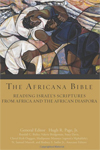 |
Page, Hugh R. Jr., et al., eds. The Africana Bible: Reading Israel’s Scriptures from Africa and the African Diaspora. Minneapolis: Fortress Press, 2010. |
|
|
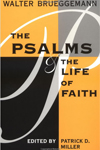 |
Brueggemann, Walter. The Psalms and the Life of Faith. Patrick D. Miller, ed. Minneapolis: Fortress Press, 1995. |
|
|
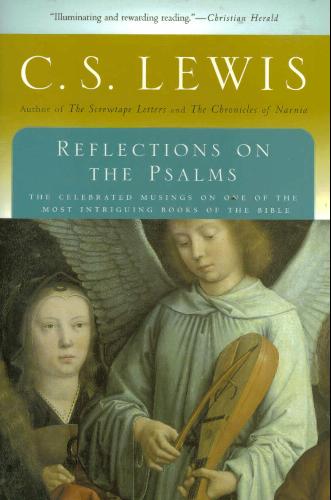 |
Lewis, C.S. Reflections on the Psalms. San Diego: Harcourt Brace & Company, 1958. |
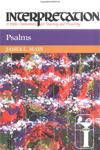 |
Mays, James L. Psalms: Interpretation: A Bible Commentary for Teaching and Preaching. Louisville: John Knox Press, 1994. |
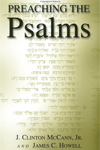 |
McCann, J. Clinton Jr., and James C. Howell. Preaching the Psalms. Nashville: Abingdon Press, 2001. |
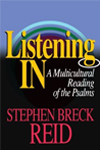 |
Reid, Stephen Breck. Listening In: A Multicultural Reading of the Psalms. Nashville: Abingdon Press, 1997. |
X. Links to Helpful Websites
XI. Cultural Resource Proverbs and Excerpts
- God gives nothing to those who keep their arms crossed. —West African Proverb
- Keep a grateful journal. Every night, list five things that happened this day that you are grateful for. What it will begin to do is change your perspective of your day and your life. If you can learn to focus on what you have, you will always see that the universe is abundant; you will have more. If you concentrate on what you don’t have, you will never have enough. —Oprah Winfrey
Cites and Additional Information for Music and Material Listed
1. Litany, Responsive Reading, or Invocation
Grateful. By Sean Brown
Location:
Walker, Hezekiah & LFC. 20/85 The Experience. Charlotte, NC: Norwood Music Publishing, 2005.
2. Hymns or Congregational Songs
(a) Count Your Blessings. By Johnson Oatman, Jr. Tune, (BLESSINGS), by Edwin O. Excell
Location:
African American Heritage Hymnal. Chicago IL: GIA Publications, 2001. #533
African Methodist Episcopal Zion Bicentennial Hymnal. Nashville, TN: A.M.E. Zion Publishing House, 1996. #626
The New National Baptist Hymnal 21st Century Edition. Nashville, TN: Triad Publications, 2005. #325
Church of God in Christ. Yes, Lord! Church of God in Christ Hymnal. Memphis, TN:
Church of God in Christ Pub. Board in association with the Benson Co., 1982. #484
(b) I Often Wonder Why It Is (It May Be the Best for Me). Text and Tune by Charles Albert Tindley
Location:
Beams of Heaven: Hymns of Charles Albert Tindley. General Board of Global
Ministries, The United Methodist Church. New York, NY: GBGMusik, 2006. #10
(c) Precious Lord, Take My Hand. Text and Tune by Thomas A. Dorsey
Location:
African American Heritage Hymnal. #471
African Methodist Episcopal Zion Bicentennial Hymnal. #628
Lead Me, Guide Me: The African American Catholic Hymnal. Chicago, IL: GIA Publications, 1987. #162
The New National Baptist Hymnal 21st Century Edition. #305
Cleveland, J. Jefferson, and Verolga Nix. Songs of Zion. Nashville, TN: Abingdon, 1981. #179
Yes, Lord! Church of God in Christ Hymnal. #384
(d) I Will Restore. Text and Tune by Richard Jenkins. Arr. by William S. Moon
Location:
Zion Still Sings for Every Generation. Nashville, TN: Abingdon Press, 2007. #115
(e) Thank You Lord. Arr. by Timothy Fryar
Location:
Fryar, Timothy, and Various Artists. Christopher Lewis Presents Rhythm & Praise. Nashville, TN: Light Records, 2003.
3. Spiritual or Traditional Song
I Thank You, Jesus. Traditional
Location:
Zion Still Sings for Every Generation. #124
4. Gospel Songs for Choirs, Ensembles, or Praise Teams
(a) Every Day Is Thanksgiving. By Leonard Gregory Banks
Location:
The New National Baptist Hymnal 21st Century Edition. #328
(b) Give Thanks. By Henry Smith. Arr. by Oscar Dismuke
Location:
Zion Still Sings For Every Generation. #127
(c) I Remember. By Frederick Butchell and Craig Watkins. Tune by Frederick Butchell and Kyle Lovett
Location:
Zion Still Sings For Every Generation. #126
(d) I Thank You, Jesus. Text and Tune by Kenneth Morris
Location:
African American Heritage Hymnal. #532
Zion Still Sings for Every Generation. #124
(e) Your Grace and Mercy. Text and Tune by Franklin D. Williams
Location:
Zion Still Sings For Every Generation. #128
5. Liturgical Dance Music
(a) I Want to Say Thank You. By Michael A. Brooks
Location:
Brooks, Lisa Page. Hidden Treasures: The Best of Lisa Page Brooks. Baltimore, MD:
Habakkuk Music, 2011.
(b) Thank You. By Darius Brooks
Location:
Brunson, Rev. Milton & The Thompson Community Singers. Through God’s Eyes. New York, NY: Word Distribution, 1993.
(c) Thank You. By Donald Alford
Location:
Brunson, Rev. Milton & The Thompson Community Singers. If I Be Lifted. New York, NY: Word Distribution, 1992.
(d) Thank You. By Leon Lewis
Location:
Washington, Benita. Benita Washington. Nashville, TN: Compendia Music Group, 2004.
(e) Your Grace and Mercy. By Frank Williams
Location:
William, Frank and the Mississippi Mass Choir. It Remains to Be Seen. Jackson, MS: Malaco, 1993.
6. Anthems
(a) How Excellent Is Thy Name. By James Abbington
Location:
GIA Publications, Inc.
7404 S. Mason Ave.
Chicago, IL 60638
Phone: 1-800-GIA-1358
Online location: www.giamusic.com
(b) Hymn of Thanksgiving. By Gary Daigle
Location:
(c) Litany of Thanksgiving. By James E. Moore, Jr.
Location:
(d) Song of Thanksgiving. By Ronald Stevens
Location:
7. Songs for Children and Youth
(a) Brand New Mercies. By Karen D. Washington
Location:
Washington, Karen D. and the KCMC Kidz Khoir. I’ll Give the Lord Praise Songbook. Karen’s Children’s Music Company, Inc. 2005.
Online location: http://www.kcmckidz.com/
(b) I Thank God. By Christopher Gray
Location:
Various Artists. House of Gospel Anthology: The 90’s Vol. 1. I AM, 1999.
(c) I’ll Give the Lord Praise. By Karen D. Washington
Location:
Washington, Karen D. and the KCMC Kidz Khoir. I’ll Give the Lord Praise Songbook. Karen’s Children’s Music Company, Inc. 2005.
Online location: http://www.kcmckidz.com/
(d) Lord You Been So Good to Me. By Tony Tidwell
Location:
Joshua’s Troop. JT3: Joshua’s Troop LIVE. Nashville, TN: New Haven Records, 2007.
(e) Thank You. By Walt Whitman
Location:
Whitman, Walt and The Soul Children and Chicago. Great Gospel Music: Choir Compilation. I AM, 1999.
8. Offertory Song or Instrumental
(a) We Bring the Sacrifice of Praise. By Kirk Dearman
Location:
West Angeles Church of God in Christ Mass Choir and Congregation. Adoration Medley:
We Bring The Sacrifice of Praise... (Saints in Praise). Nashville, TN: Sparrow Records,
1990.
(b) Give Thanks. By Don Moen
Location:
T. D. Jakes. Praise & Worship. New York, NY: Integrity, 2008.
9. Song or Instrumental for the Period of Prayer
(a) Thank You. By Richard Smallwood
Location:
Adoration: Live in Atlanta. New York, NY: Jive, 1996.
(b) Total Praise. By Richard Smallwood
Location:
Adoration: Live in Atlanta. New York, NY: Jive, 1996.
10. Sermonic Selection
(a) Thank You. By Rev. Frank Jr. Ray
Location:
Peoples, Dottie. Testify. Atlanta, GA: Atlanta International, 1997.
(b) Thank You. By Alphaeus Anderson and Shawn Bigby
Location:
Pugh, Earnest. Earnestly Yours. New York, NY: Worldwide Music, 2011.
11. Invitational Song or Instrumental
(a) Thank You. By Walter Hawkins
Location:
Flunder, Yvette and Walter Hawkins. Love Alive IV. Jackson, MS: Malaco, 1990.
(b) Delivered. By Dr. Jeff Jacobs
Location:
He’s Just Alright. Global Gospel Music, 2009.
12. Benediction Song or Instrumental
(a) Always Remember. Text and Tune by Andraé Crouch
Location:
African American Heritage Hymnal. #640
(b) Oh Give Thanks. By Judith Christie McAllister
Location:
Jakes, T. D. and Judith Christie McAllister. Woman Thou Art Loosed: Worship 2002—Run to the Water...The River Within. Brentwood, TN: Chordant, 2002.
| 
